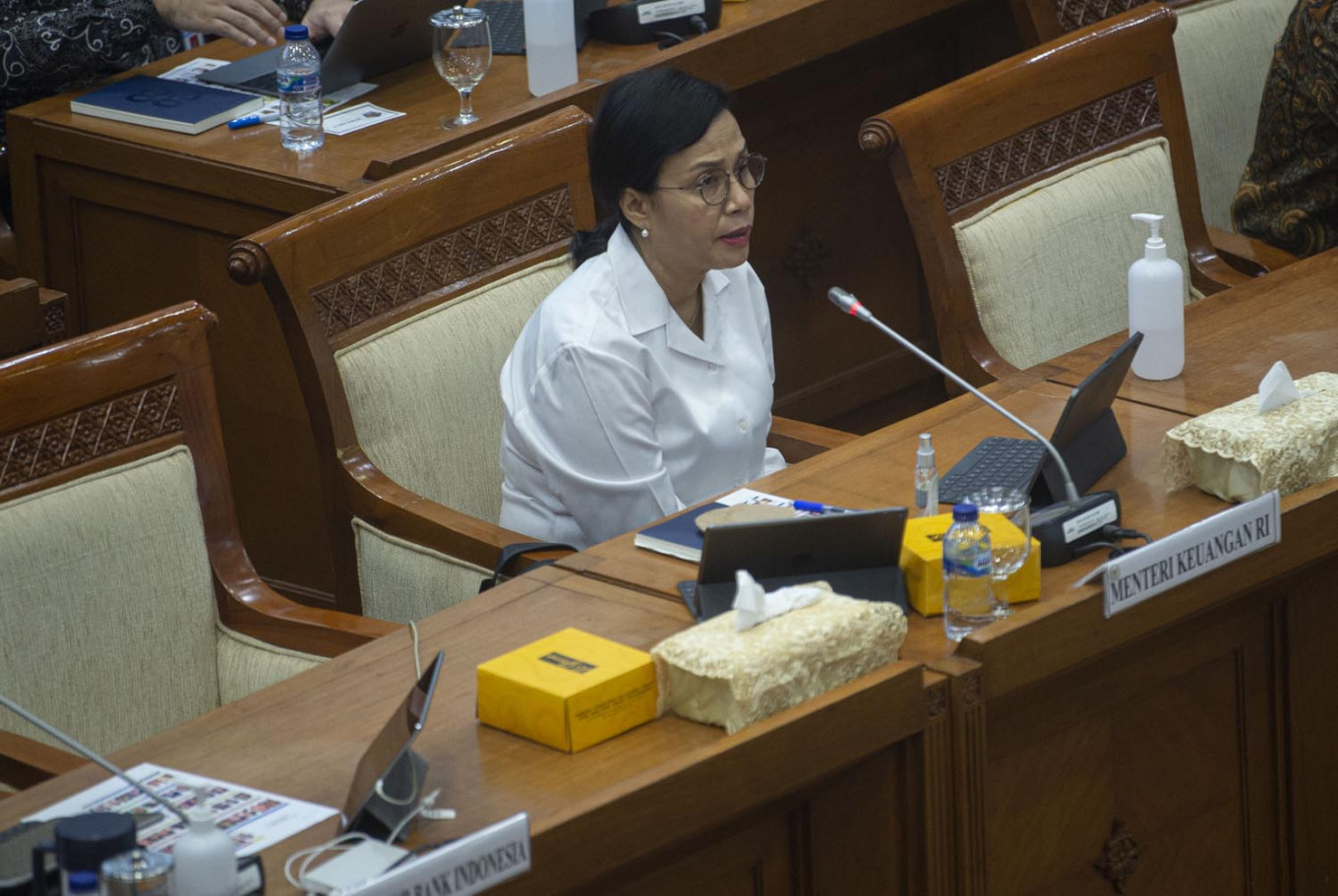Popular Reads
Top Results
Can't find what you're looking for?
View all search resultsPopular Reads
Top Results
Can't find what you're looking for?
View all search resultsBudget deficit projected to reach 5.7 percent of GDP in 2021 as uncertainty hits tax revenue
The government now expects the fiscal deficit to reach Rp 1 quadrillion (US$67.32 billion), 5.7 percent of GDP, and increase by Rp 35.2 trillion compared to the previous estimate of 5.5 percent of GDP, as income from taxes will fall further.
Change text size
Gift Premium Articles
to Anyone
T
he government and the House of Representatives have agreed to widen the state budget deficit to 5.7 percent of gross domestic product (GDP) next year as uncertainty surrounding the coronavirus pandemic is expected to further affect activity and eventually tax revenue.
The coronavirus outbreak in the country has escalated economic uncertainty this year and next, Finance Minister Sri Mulyani Indrawati said on Friday, adding that the government would revise macroeconomic assumptions underpinning the state budget to reflect the new reality.
“We are seeing huge economic uncertainty [in 2021] and thus we will make changes to the tax income target to reflect the situation,” she told the House’s Budget Committee during a hearing. “We will remain vigilant and optimistic in facing these economic challenges”.
The government now expects the fiscal deficit to reach Rp 1 quadrillion (US$67.32 billion), 5.7 percent of GDP, and increase by Rp 35.2 trillion compared to the previous estimate of 5.5 percent of GDP, as tax income will fall further.
However, the government would maintain its economic growth target at around 5 percent, the finance minister said, adding that no one could truly know the trajectory of the pandemic in the next 12 months. The outlook for GDP this year is within the range of a 1.1 percent contraction to a 0.2 percent expansion.
The government collected Rp 601.9 trillion in taxes in the first half, down 14.7 percent year-on-year and around 50 percent of this year’s target as business activity cooled. Sri Mulyani said on Sept. 2 that the government expected a greater tax shortfall this year following a change in its economic growth estimate.
Next year, state income was expected to reach Rp 1.74 quadrillion, down Rp 32.7 trillion from the previous projection due to lower income from non-oil and gas taxes, she said. Tax income might reach Rp 1.22 quadrillion next year, a drop of Rp 38.9 trillion compared to the previous estimate.
Meanwhile, state spending is expected to increase by Rp 2.5 trillion to Rp 2.75 quadrillion next year, driven by higher government spending on energy subsidies, particularly for liquefied petroleum gas (LPG), at Rp 2.4 trillion.
Indonesia’s economic recovery is expected to take longer than expected as a recent surge in virus cases has dented people’s confidence in the economy, as reflected by recent sales data, which indicates domestic consumption remained weak even after the economy reopened.
Indonesia recorded more than 207,000 cases of COVID-19 as of Thursday with 8,456 fatalities, prompting the Jakarta administration to reintroduce stricter social distancing measures to curb the virus spread.
The city administration would require non-essential industries to have their employees work from home, limit the use of public transportation and forbid dining in restaurants starting Sept. 14, similar to the restrictions imposed from April to June, Governor Anies Baswedan said on Wednesday.
The capital’s regional gross domestic product accounted for 17.17 percent of the country’s GDP in the second quarter, the highest of any region, Statistics Indonesia (BPS) data show.
Critics of the decision say the policy might further hinder economic recovery, but supporters of the decision say it is necessary to prevent the healthcare system from collapsing.
“The economy is more likely to contract than grow in the third quarter this year, even without other movement restrictions,” Bank Central Asia (BCA) economist David Sumual said on Thursday. “The economy has been losing steam since August as virus cases jump.”
Indonesia's GDP contracted 5.32 percent in the second quarter as household spending and investment shrank.










